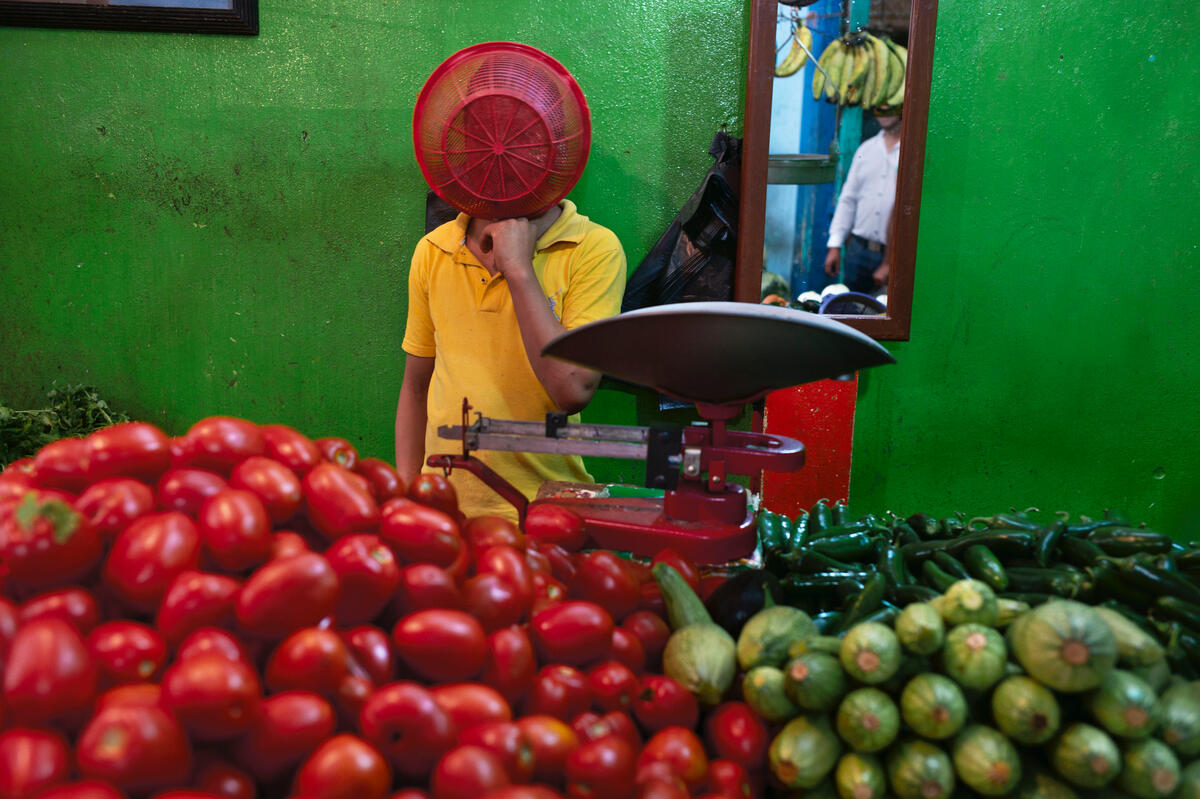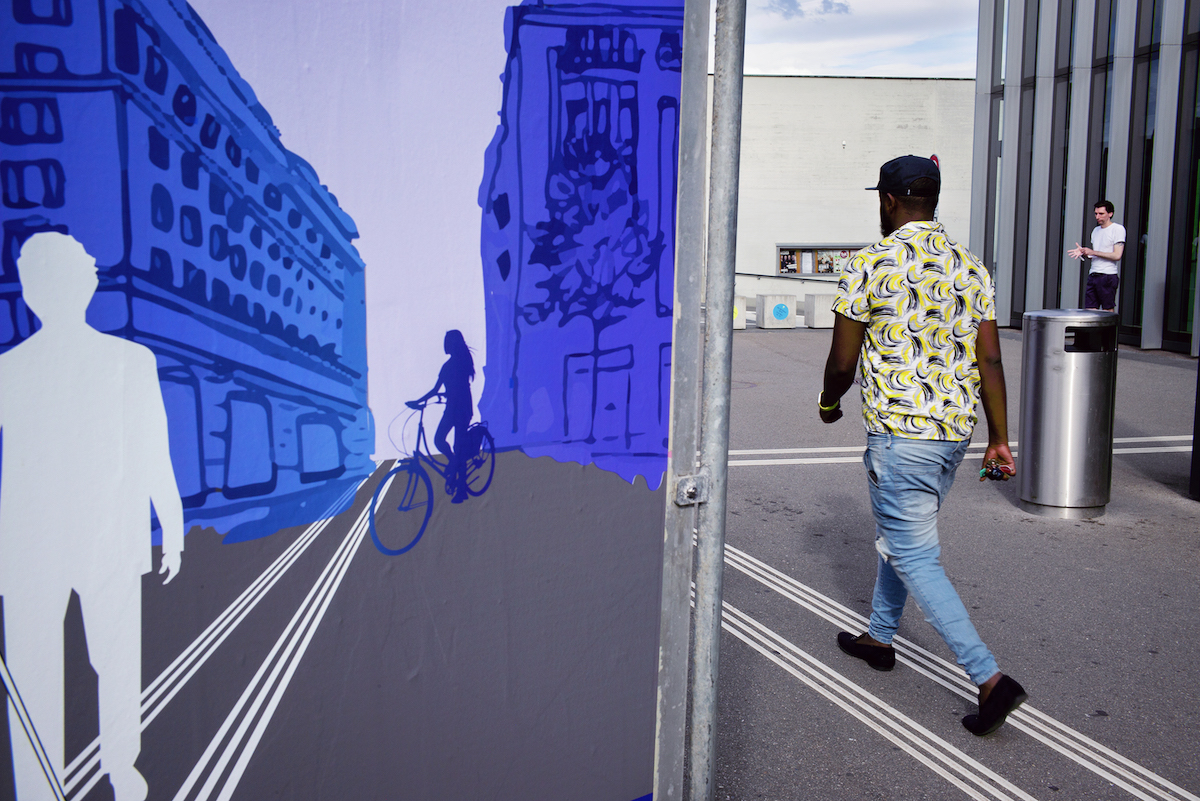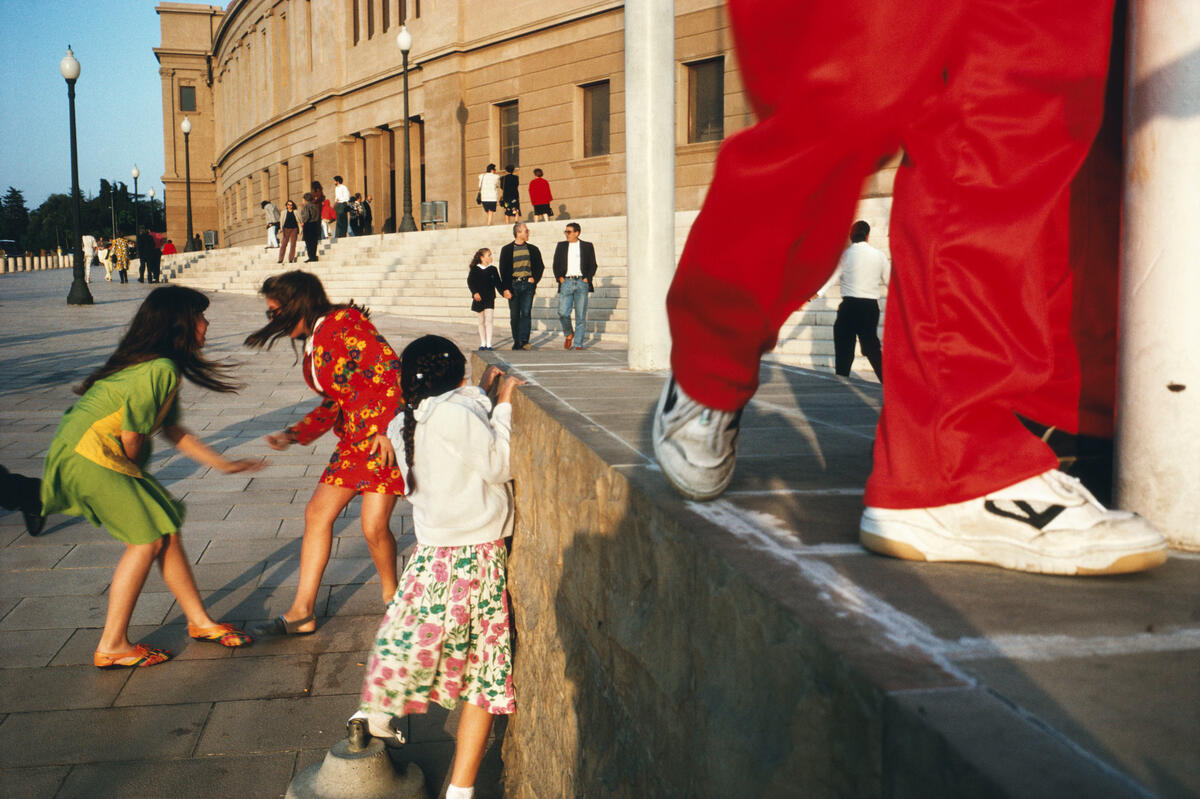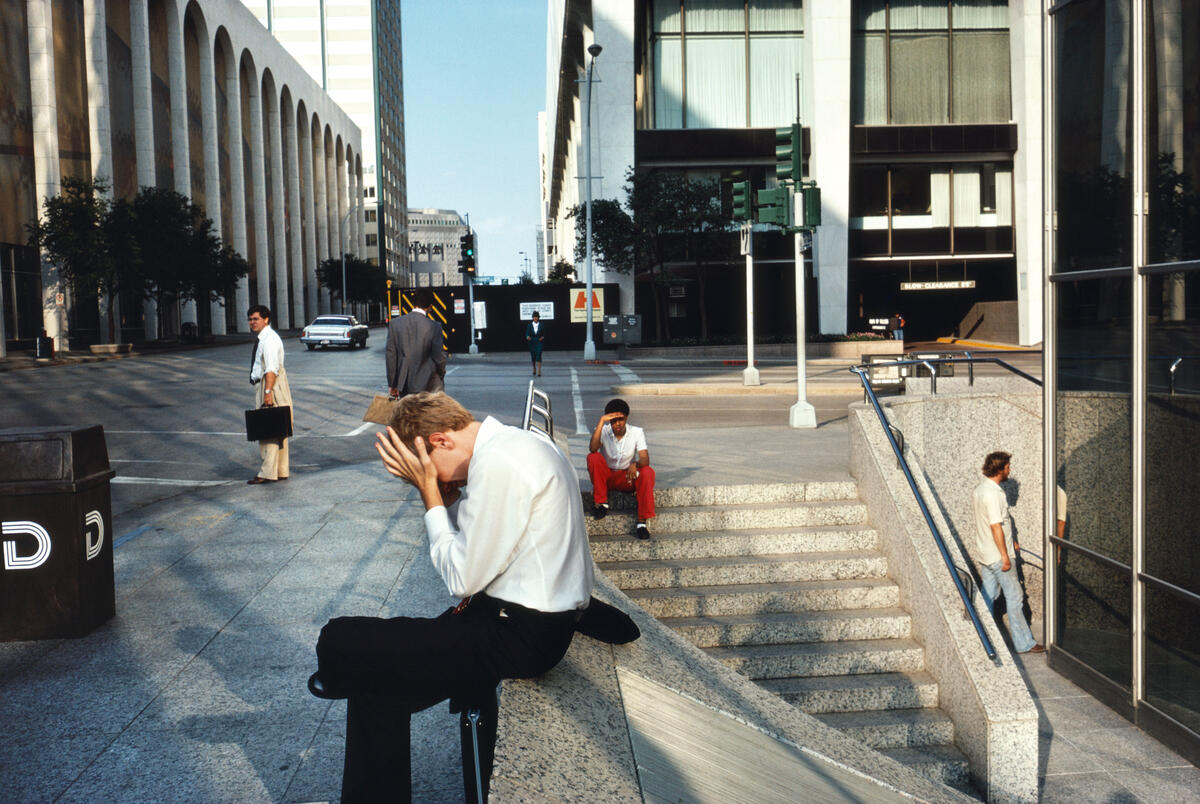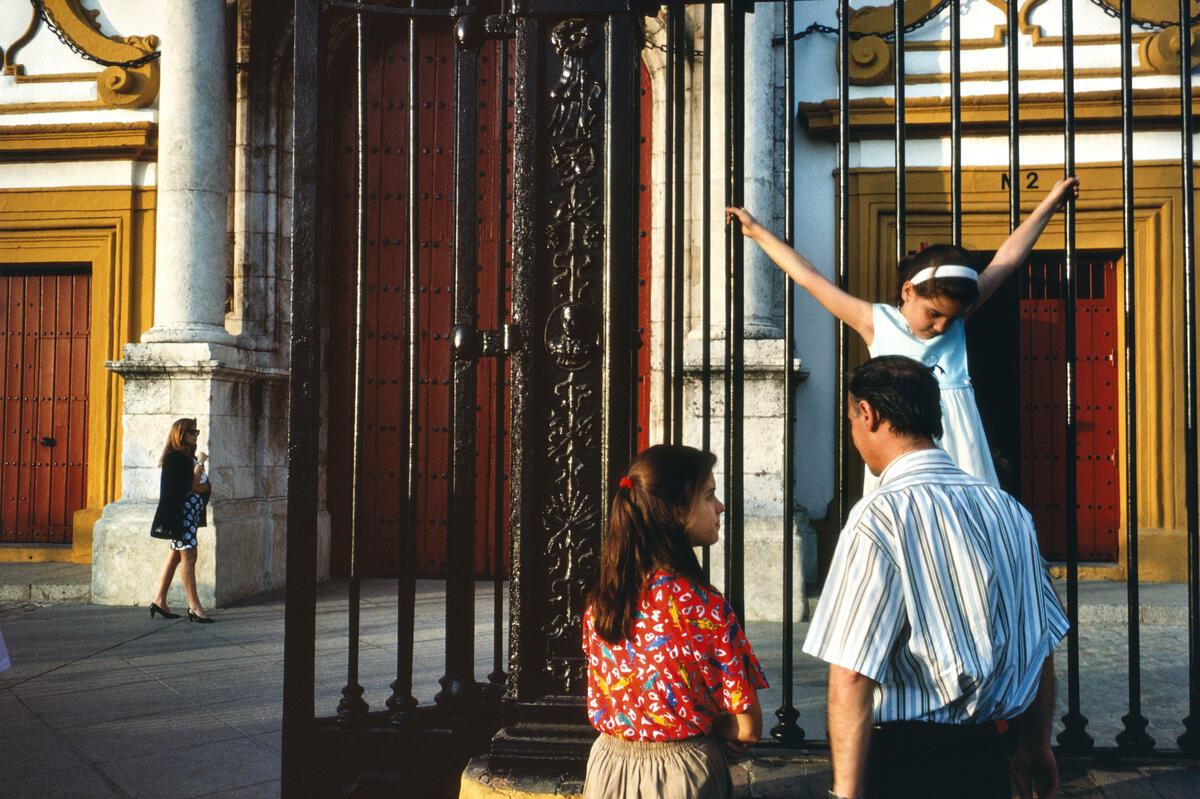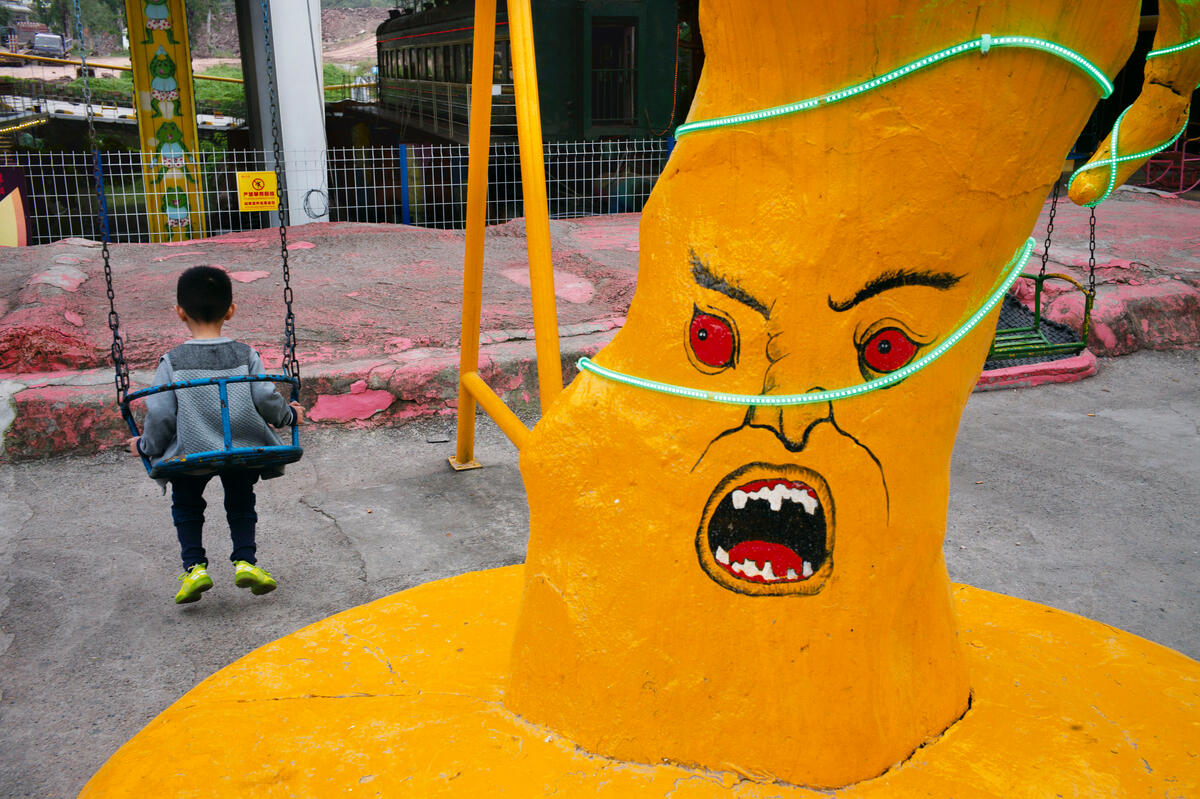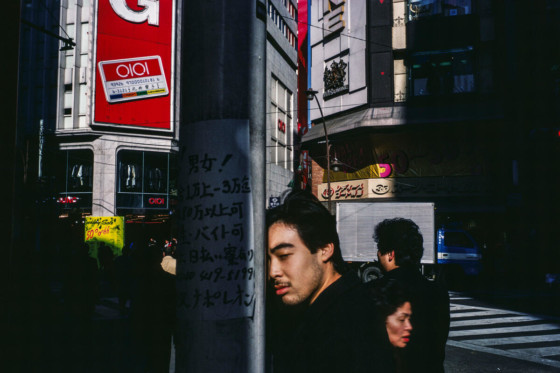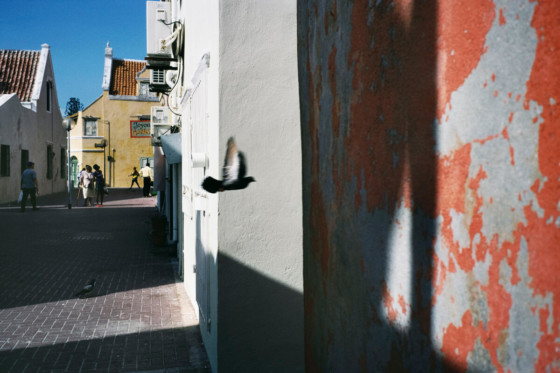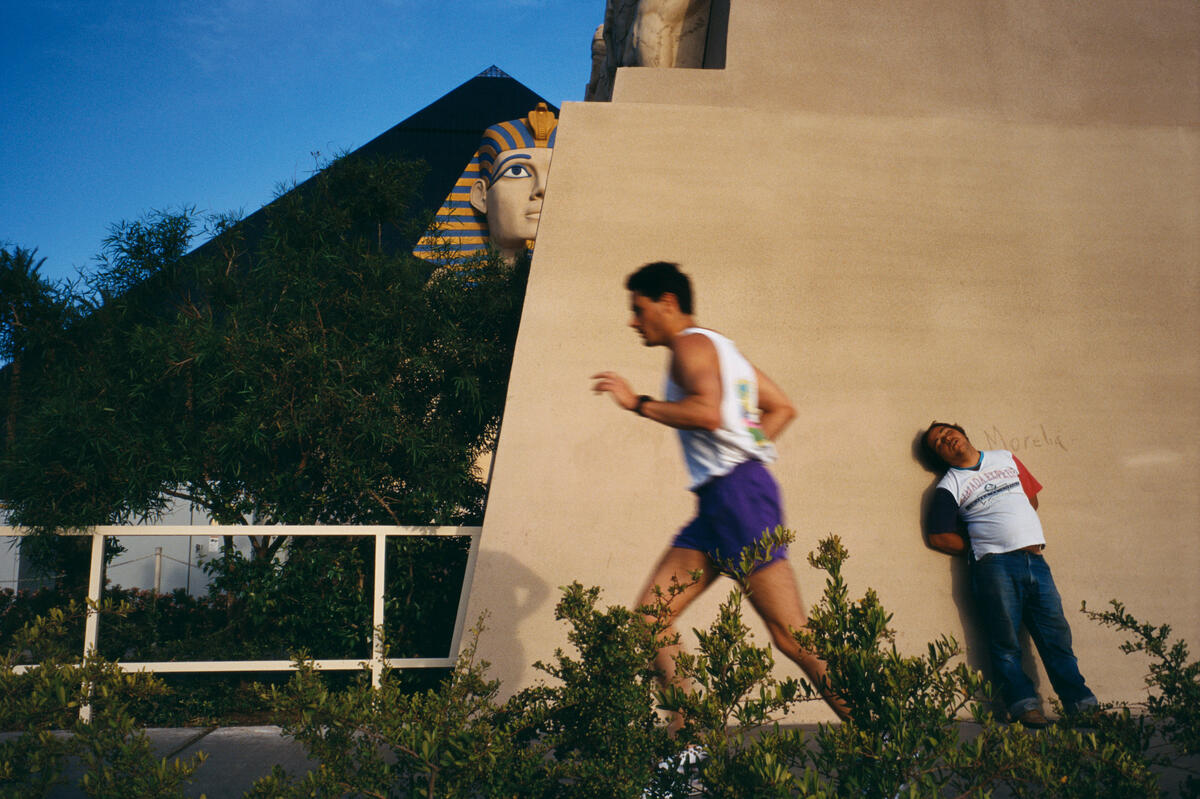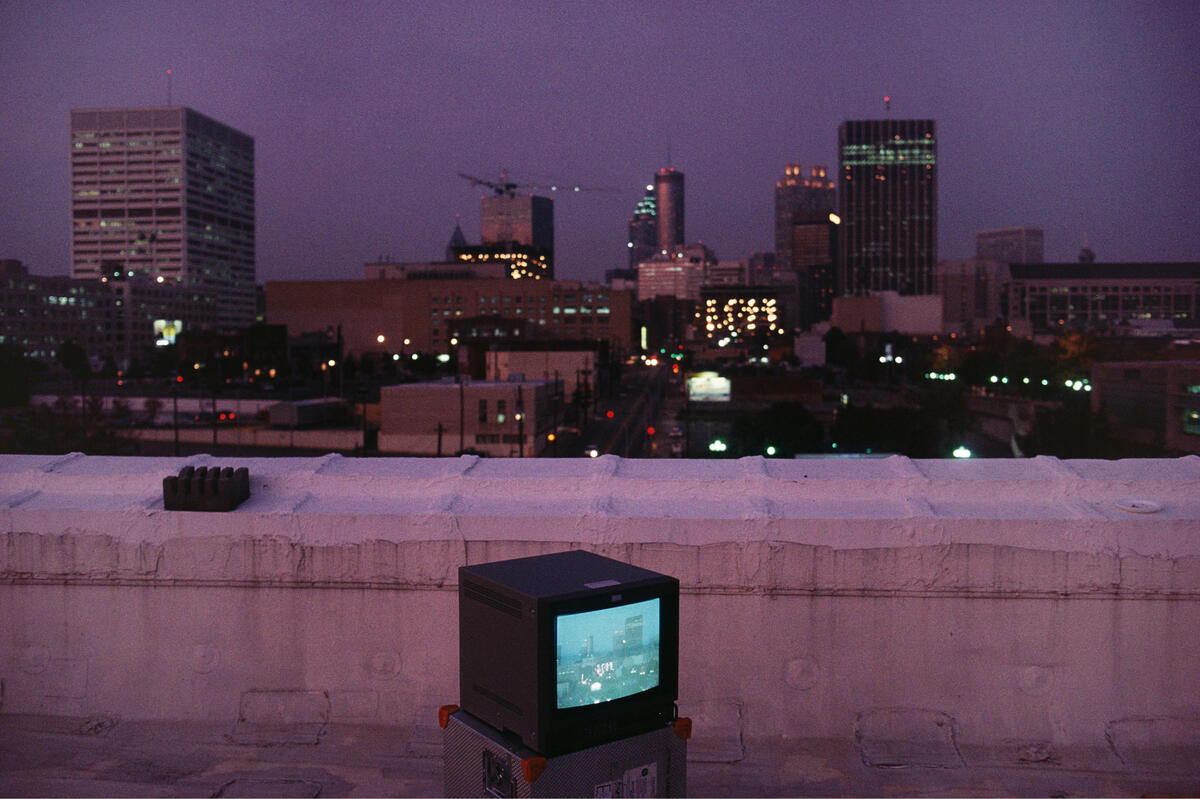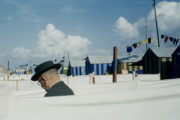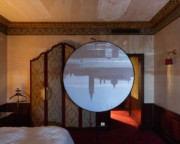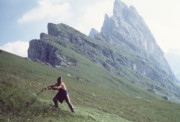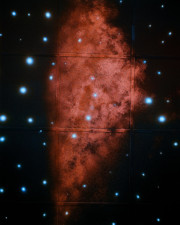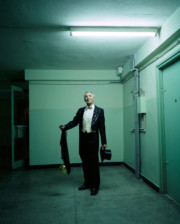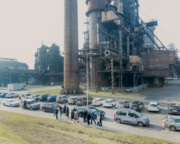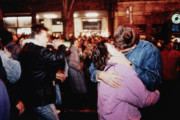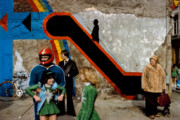The Strange, the Surprising, and the Slightly Surreal
Alex Webb discusses the recently published re-edition of his 1998 rare artist book, Dislocations
“In my photography, I think I’ve long been drawn to the strange, the surprising, the slightly surreal,” explains Alex Webb in an interview around his new photobook, Dislocations. “In some of my projects this tendency may strike a more specifically socio-political note — for example the enigmas of the U.S.-Mexico border, or the cross-cultural paradoxes of Istanbul. In the case of Dislocations, I have specifically embraced photographs that reflect the strangeness of the world on all levels — visual, emotional, psychological, socio-political, and cultural.”
In 1998, Webb first published Dislocations with the Harvard Film Study Center. It was a unique accordion book that came in a collapsible box, and comprised of around 50 Canon laser prints. The photographs were tipped in on debossed pages and each title was handwritten by Webb himself. Considered an “experiment in alternative bookmaking,” it was published in an edition of 40 and had been out of print ever since.
Twenty-five years later, Webb has revised the original in a new version, published by Aperture in fall of 2023. This new edition continues to explore this notion of “dislocation,” with the addition of new “dislocated” photographs from his now-expanded archive, spanning the early 1980s to 2022.
“There is something a bit odd, a bit inexplicable in many of the photographs,” he explains. “The viewer sees a surfer in Munich through a bridge grating that looks like a rifle sight, or a man riding a horse in Nagorno-Karabakh surrounded by walls of license plates, or a street scene in Bern surreally mirrored by a nearby poster.”
"The images often reflect the strangeness of the world, those singular moments that so often remain unseen, those moments of ‘dislocation.’"
-
Like the original version of Dislocations, the new edition opens with an excerpt from the Oxford English Dictionary, drawing upon two definitions for the book’s title and running theme. We think of geographical dislocation with the first: “Displacement; removal from its proper (or former place or location),” while a more emotional state perhaps springs to mind with the second: “a confused or disordered state.”
“I like the notion of the ‘confused or disordered state,’” he explains. “It suggests the possibility that this was the state of the photographer, myself, when taking these photographs.”
In one image, made in Dallas in 1981, the composition is almost theatrical. The individuals seem frozen, some mid-movement, as if they were meant to be there, in that exact position, at that exact time. “I vaguely remember arriving at this corner in Dallas. I recall taking a few frames, and then suddenly, in the center of the scene, a man raised his hands to his face, while someone behind him, wearing bright red pants, lifted his right hand to his forehead, presumably shielding his eyes from the sun.”
“Like many of my more interesting photographs through the years, this one was utterly reliant on serendipity.”
Holding the re-edition in your hands it seems, on the surface, to be an entirely different book, now printed and bound in a traditional manner and with over half of its 80 images being new additions to the œuvre. And yet, Webb has carefully assured that the rare original is respected. The former cover of the previous edition is nestled underneath the otherwise new dust jacket and several of the images from the original selection remain. “I wanted to acknowledge the original artist book, yet expand it into something new and different,” he explains.
“I wouldn’t say I felt nostalgia while working on the book, but I was keenly aware of the loss of two people who were instrumental in the making of the original. One was the brilliant documentary filmmaker, Bob Gardner, who oversaw the creation of the Dislocations artist book at Harvard’s Film Study Center. He was remarkably generous and supportive, helping out many artists besides myself with their projects. And I feel the loss of his close friend and colleague — and a former teacher of mine at Harvard — the filmmaker and photographer Dick Rogers. I deeply miss both of these insightful and very special men.” At the back of the book, in Webb’s acknowledgments, he dedicates the book to their memory.
Reflecting on how his approach to book-making has changed over the years, Webb mentions that a key element of change in his practice is the notion of collaboration. “In the 1980s while working on my first book, Hot Light-Half-Made Worlds, I saw myself as a kind of photographic lone wolf,” he explains. “That has changed considerably. I now collaborate extensively with my wife and creative partner, the photographer and poet Rebecca Norris Webb, to select and sequence the images in my books, as well as with David Chickey, who has designed nearly all the books I’ve published since 2009.”
The idea of publishing a new edition came to Webb during the pandemic, while both himself and Norris Webb were sequestered in Wellfleet, Massachusetts. Besides finishing Rebecca’s monograph, Night Calls, the creative couple worked on two other projects. The first of these was the collaborative photobook Waves. Published by Radius Books in 2022, Waves is a pandemic logbook of words and images, made during the fourteen consecutive months that the two spent on the peninsula.
In many ways, Dislocations is Waves’ polar opposite, with a selection of images that transport the viewer across the globe. “I think it’s really interesting that I worked on these two totally different projects during the pandemic: one in which all the photographs were taken in one town — within a six-mile diameter — and the other in which the images come from all over the world,” Webb explains.
“They are both products of the pandemic, and they both reflect a deep need to create during such a difficult time. In a way, while I was working on a new version of Dislocations, I was traveling all over the world — not physically, but virtually, through the photographs.”
Copies of Dislocations are now available to buy here.
Alex Webb and Rebecca Norris Webb will be hosting a talk at the Magnum Foundation in New York on Monday, January 29. In this joint slide talk, they will discuss the process of working collaboratively on books and exhibitions, as well as individually on their own projects, including “Dislocations” and Norris Webb’s recent book, “Night Calls.” The talk will be followed by a Q&A and book signing hosted by Magnum. RSVP here.


